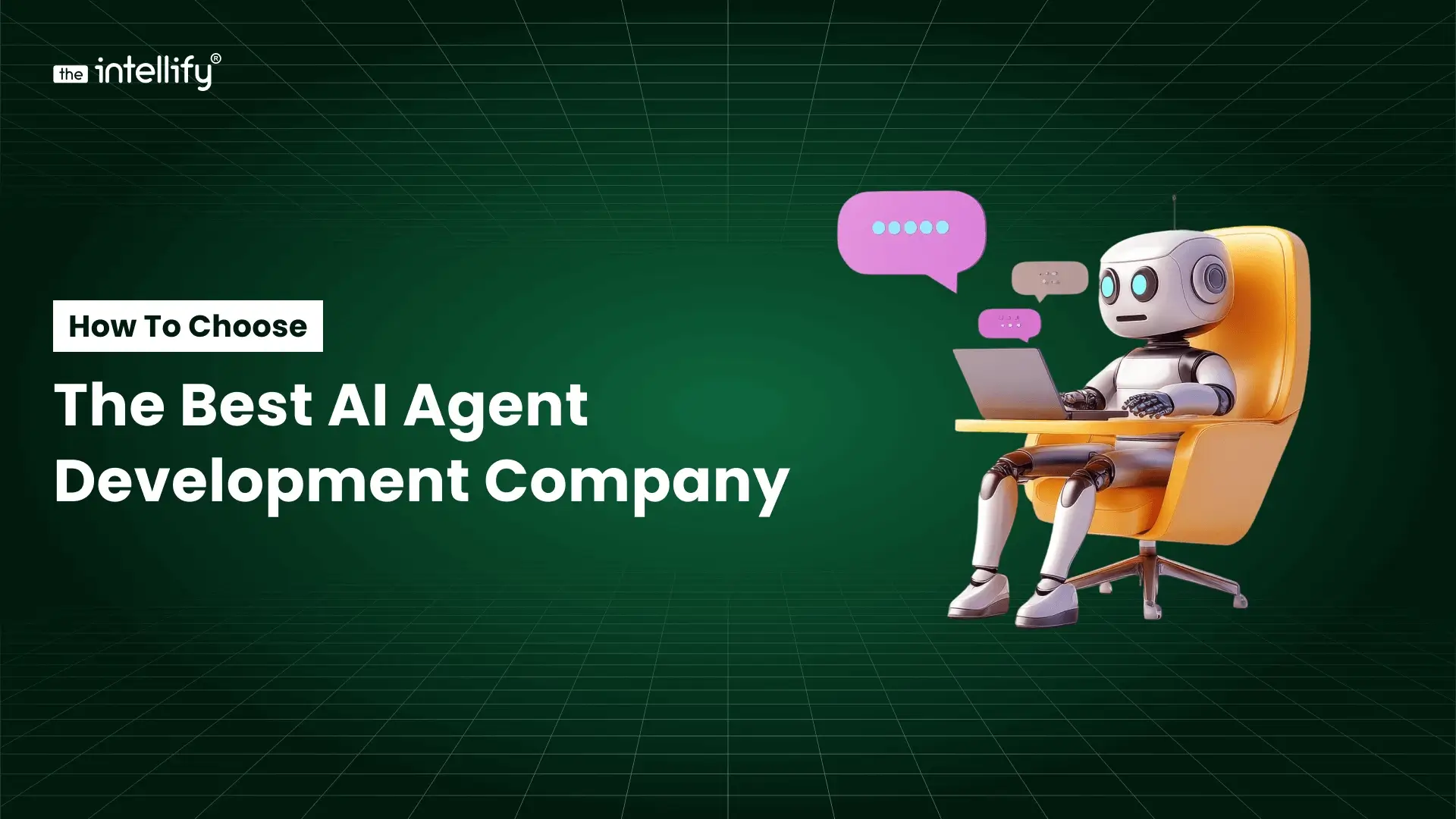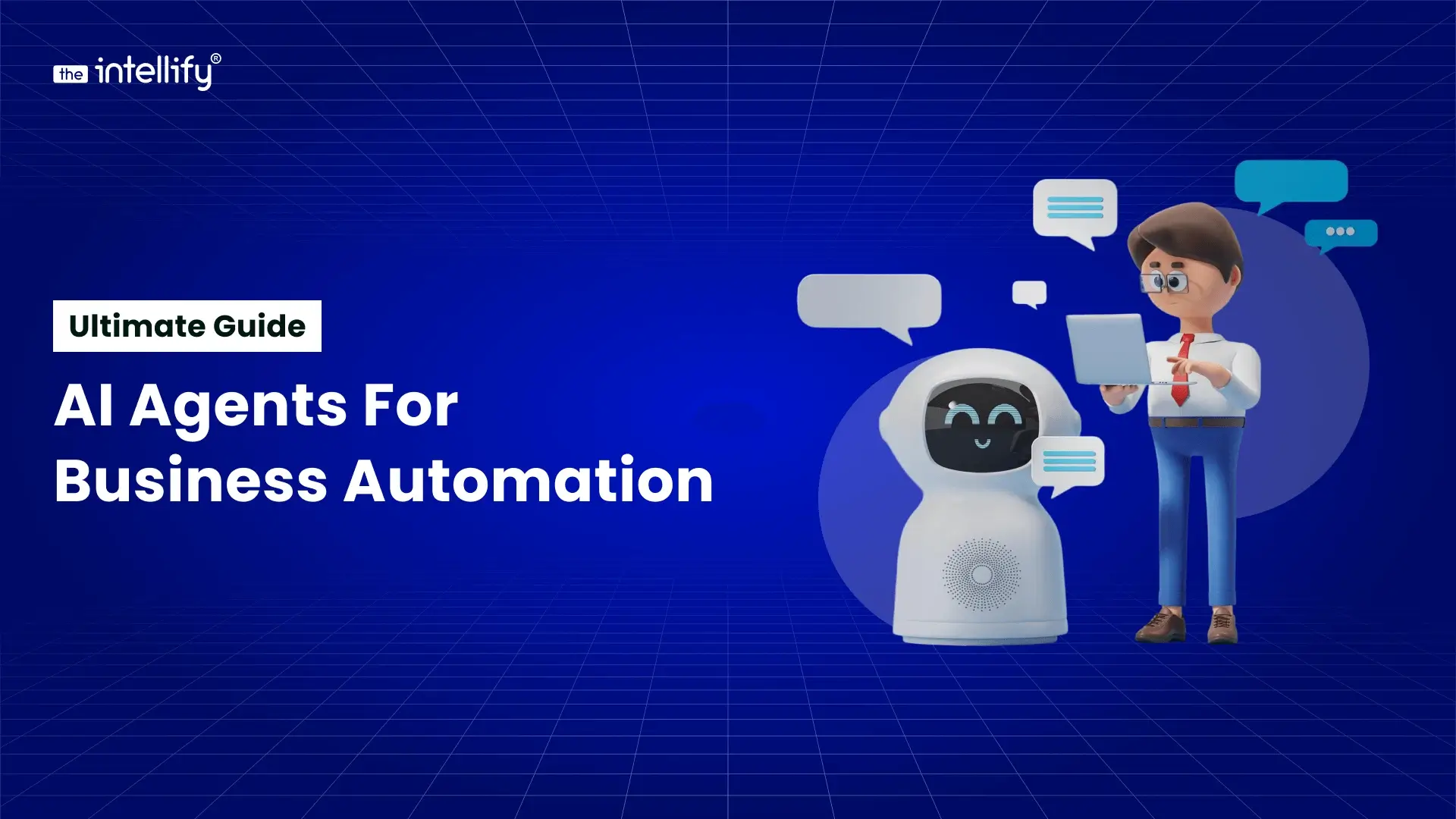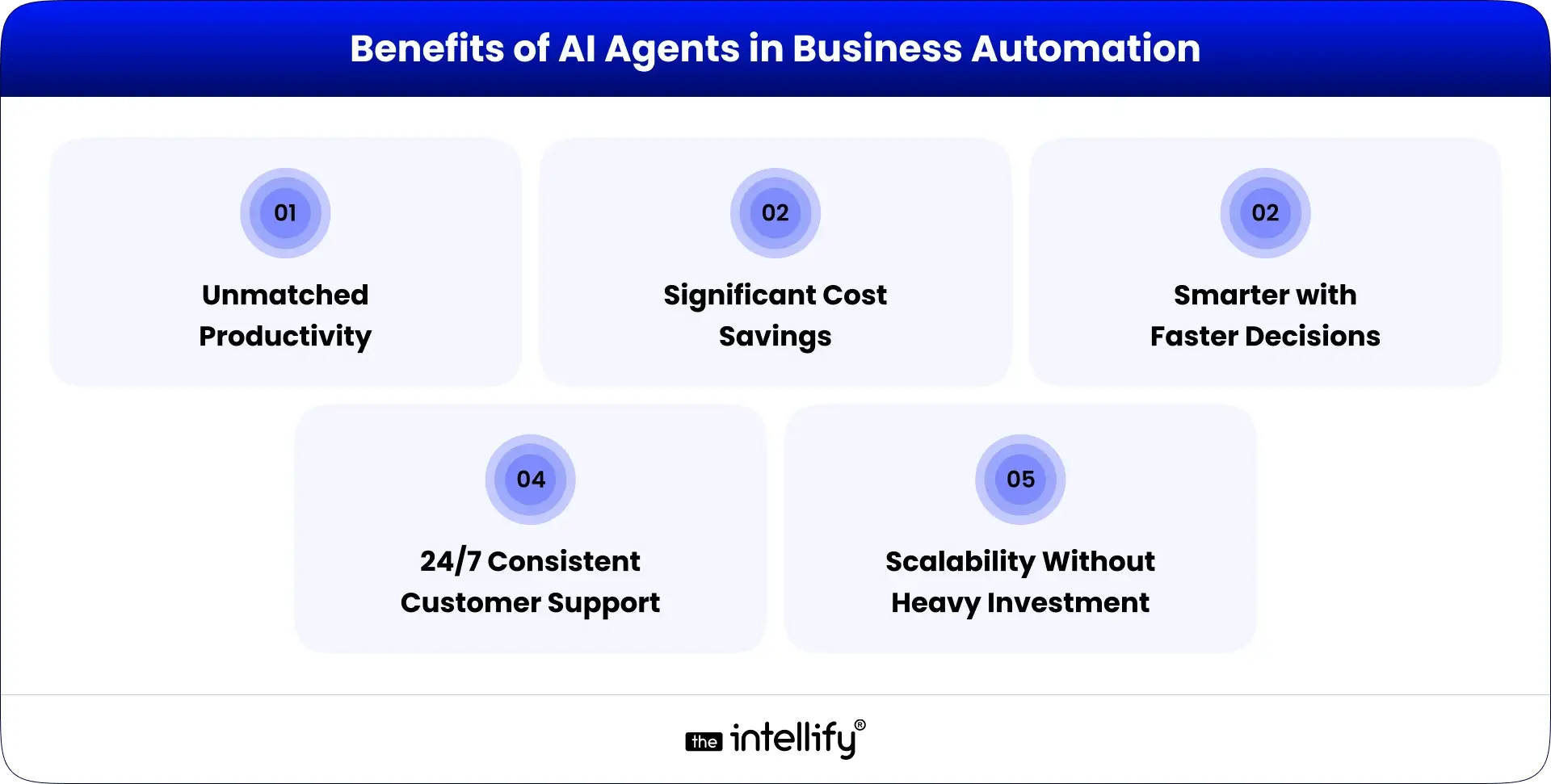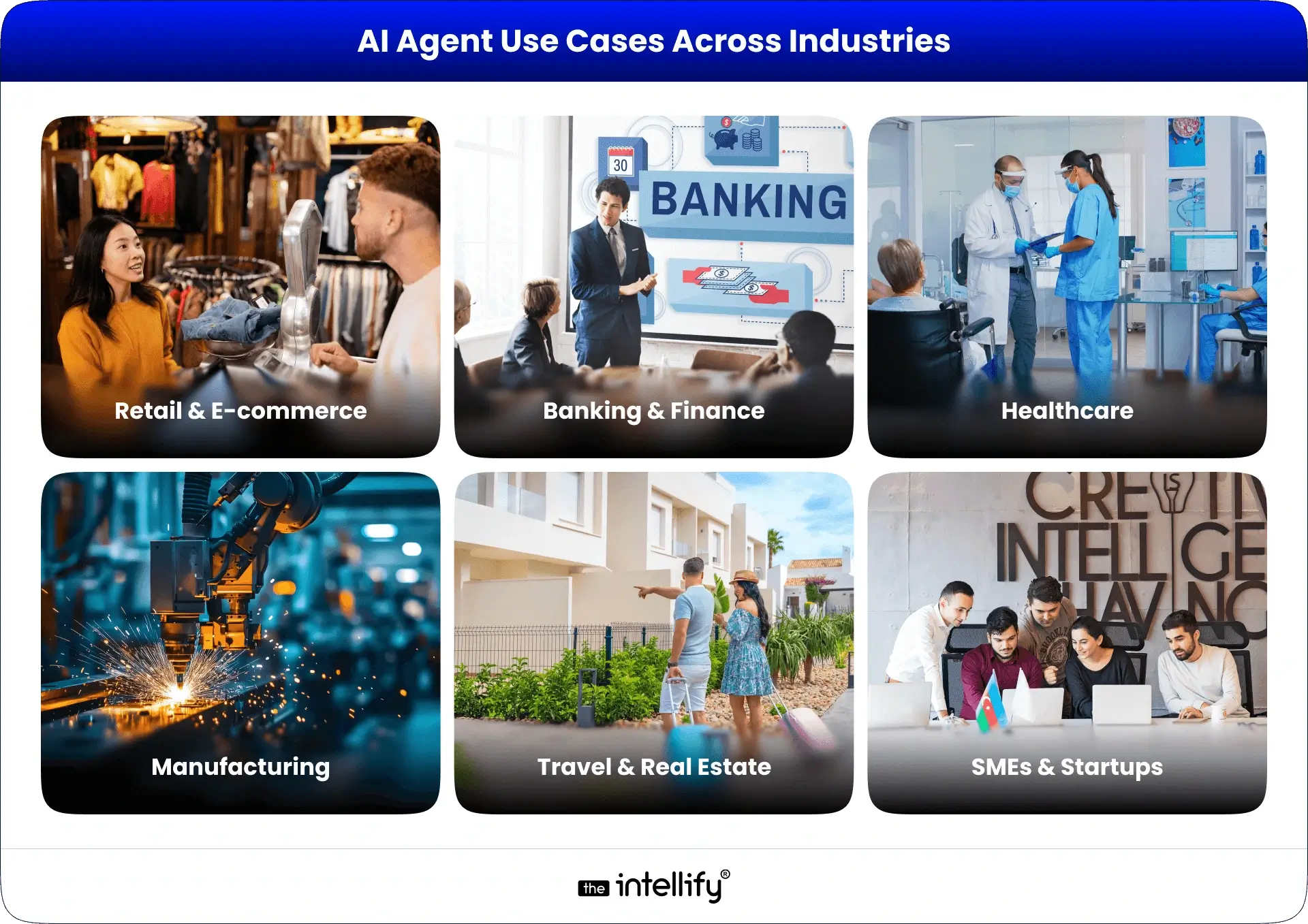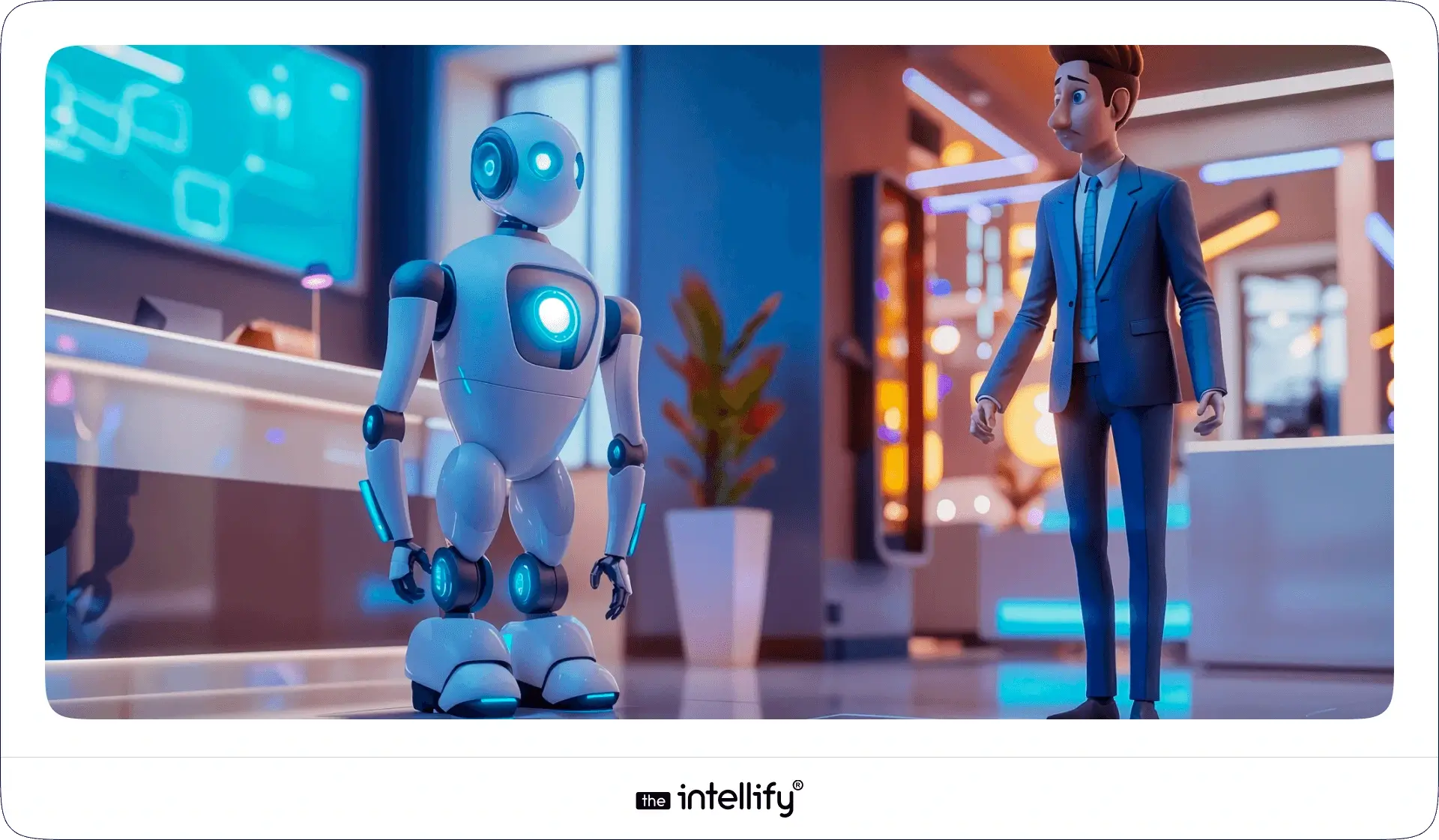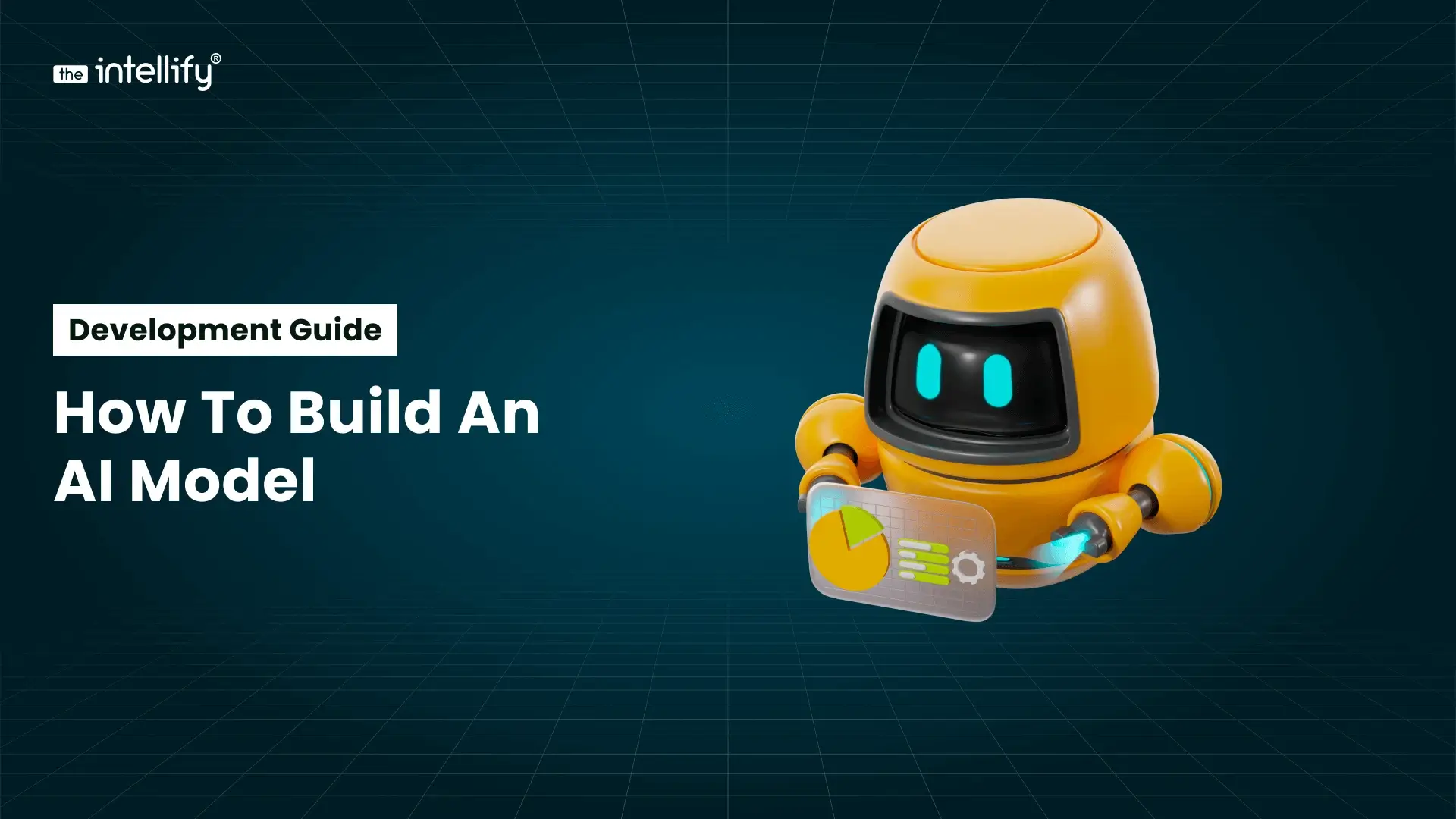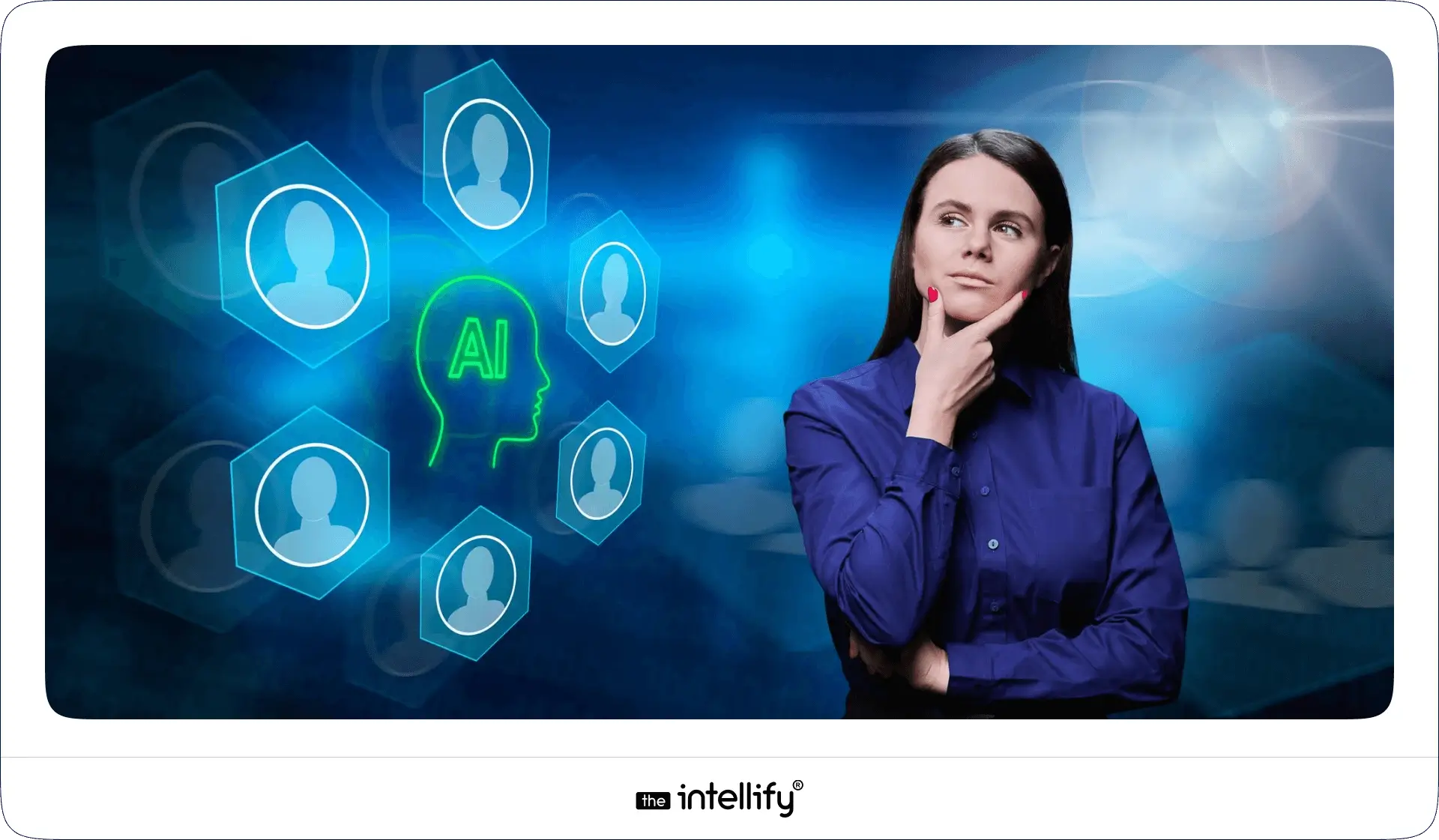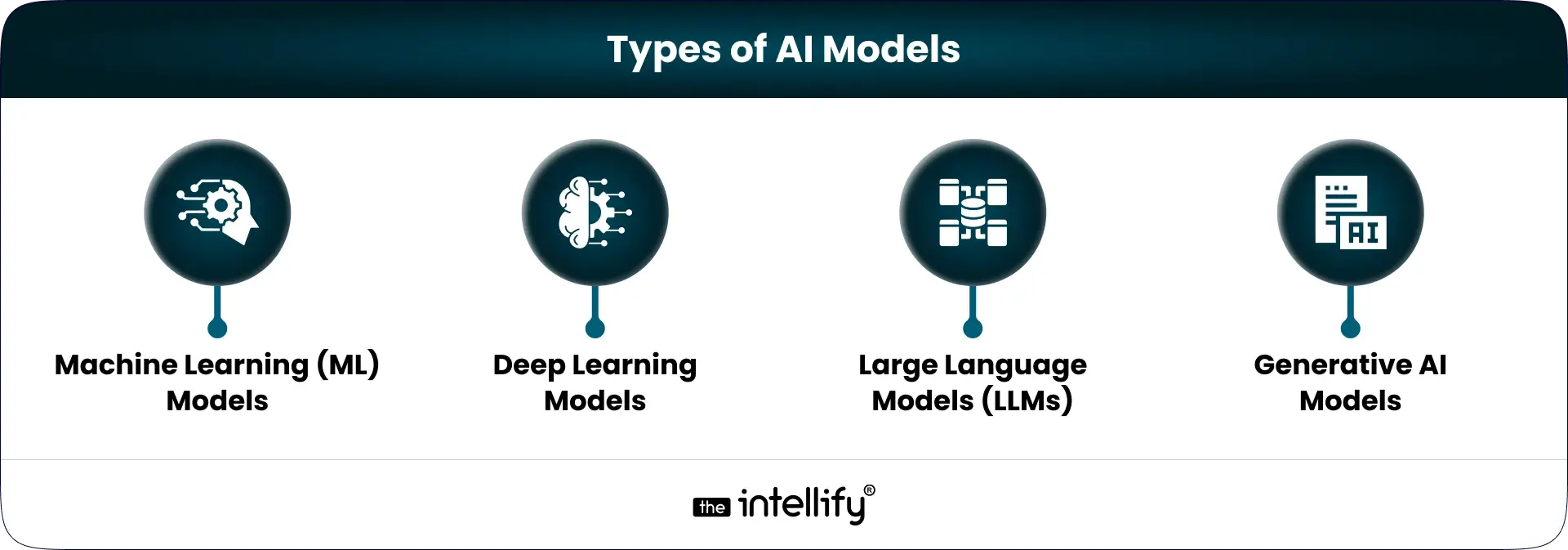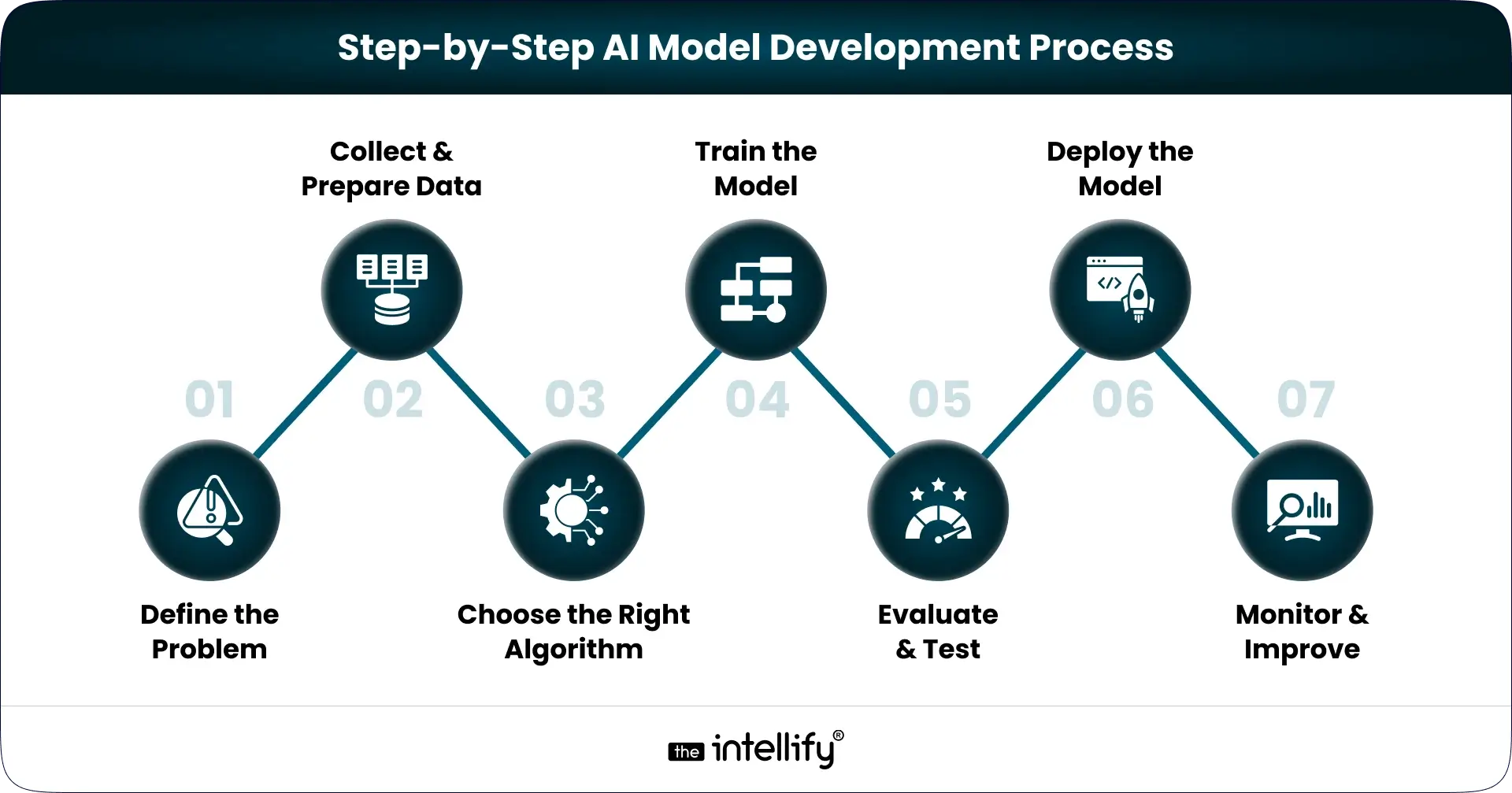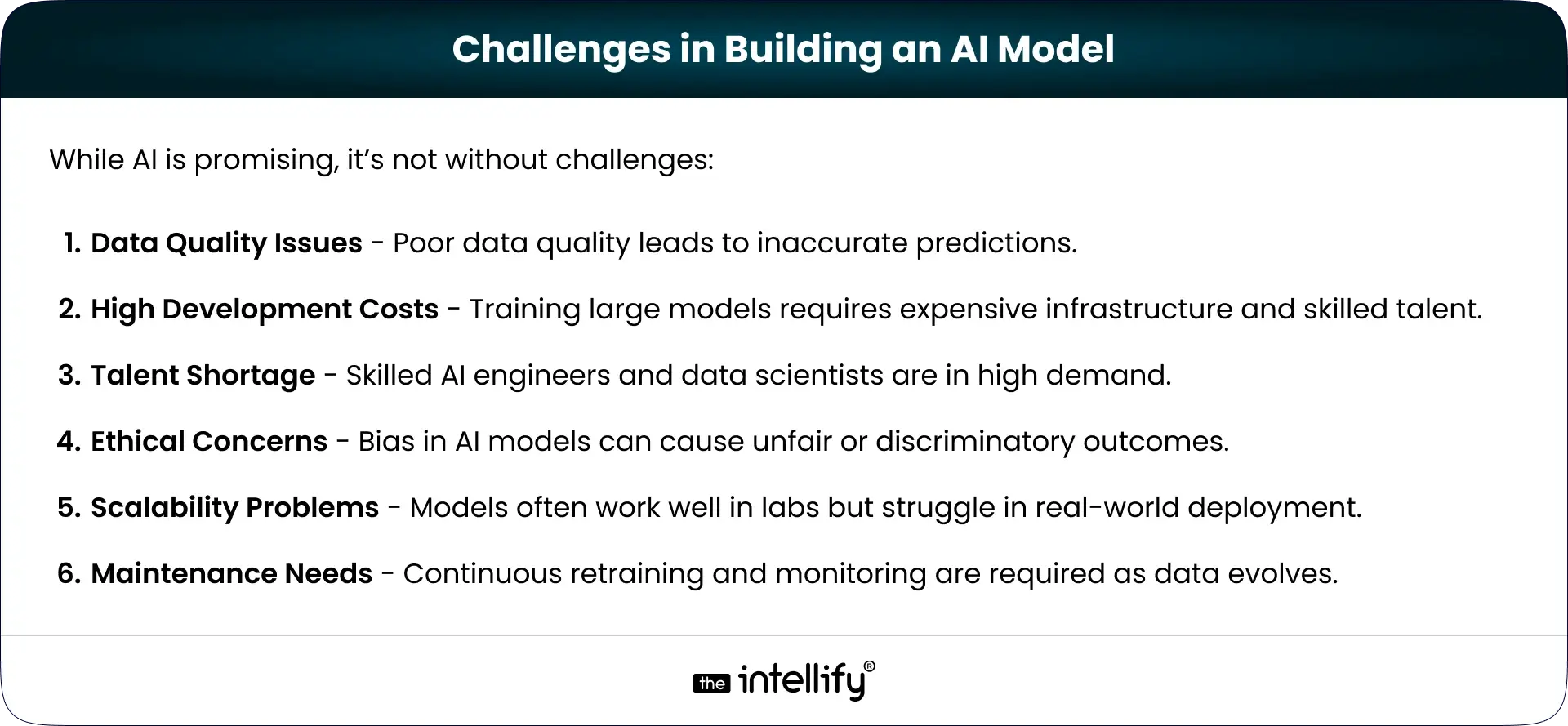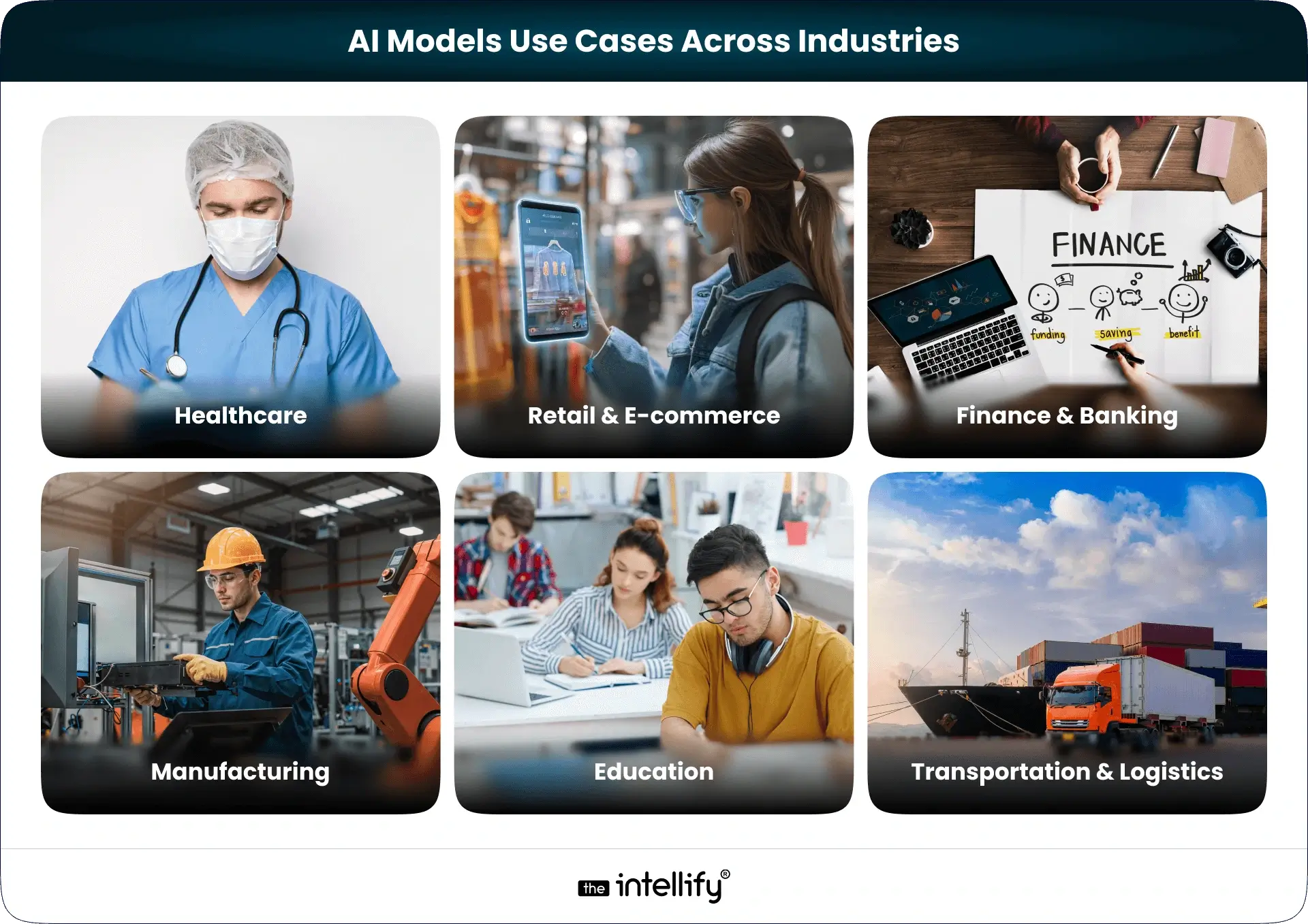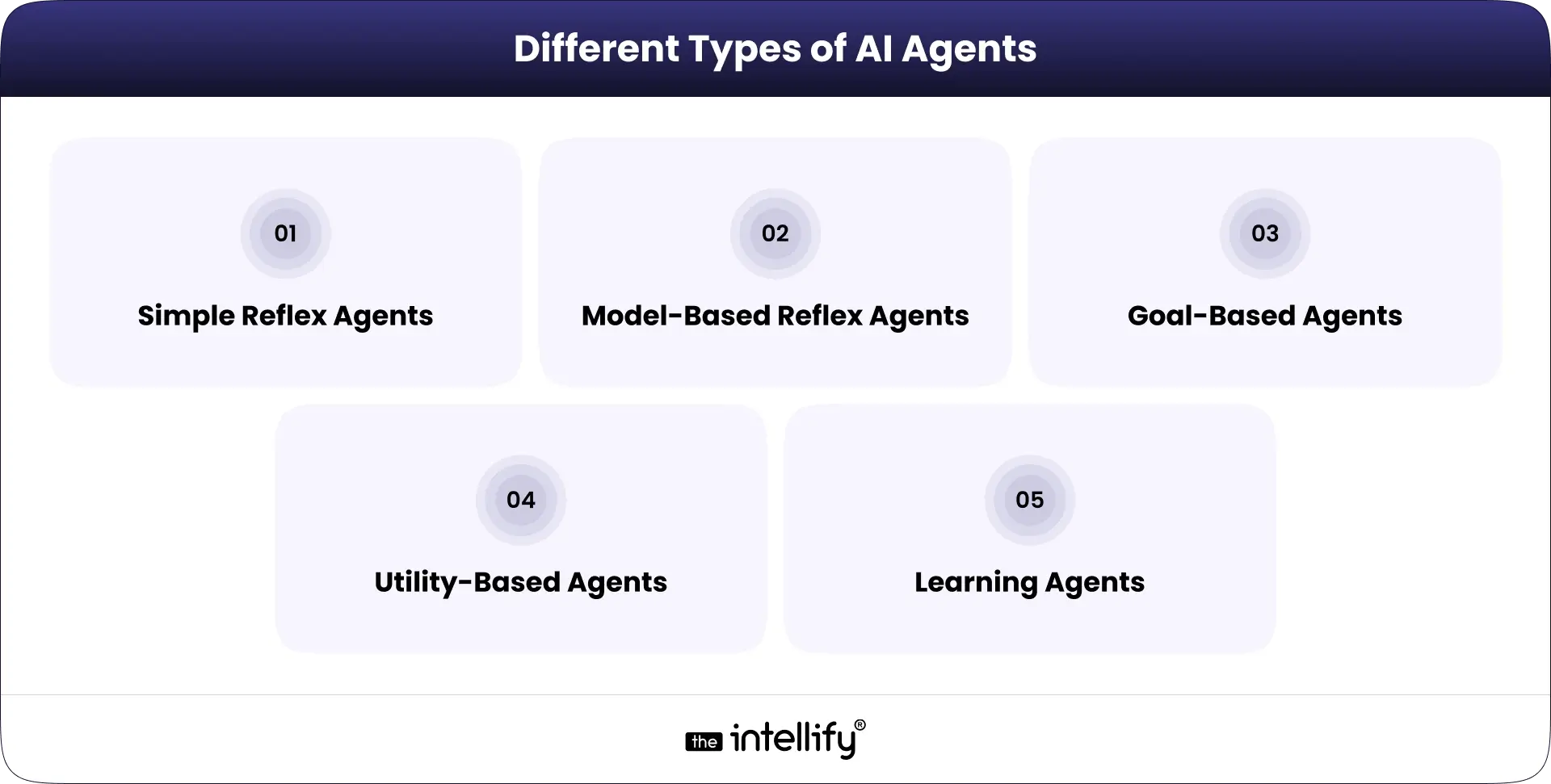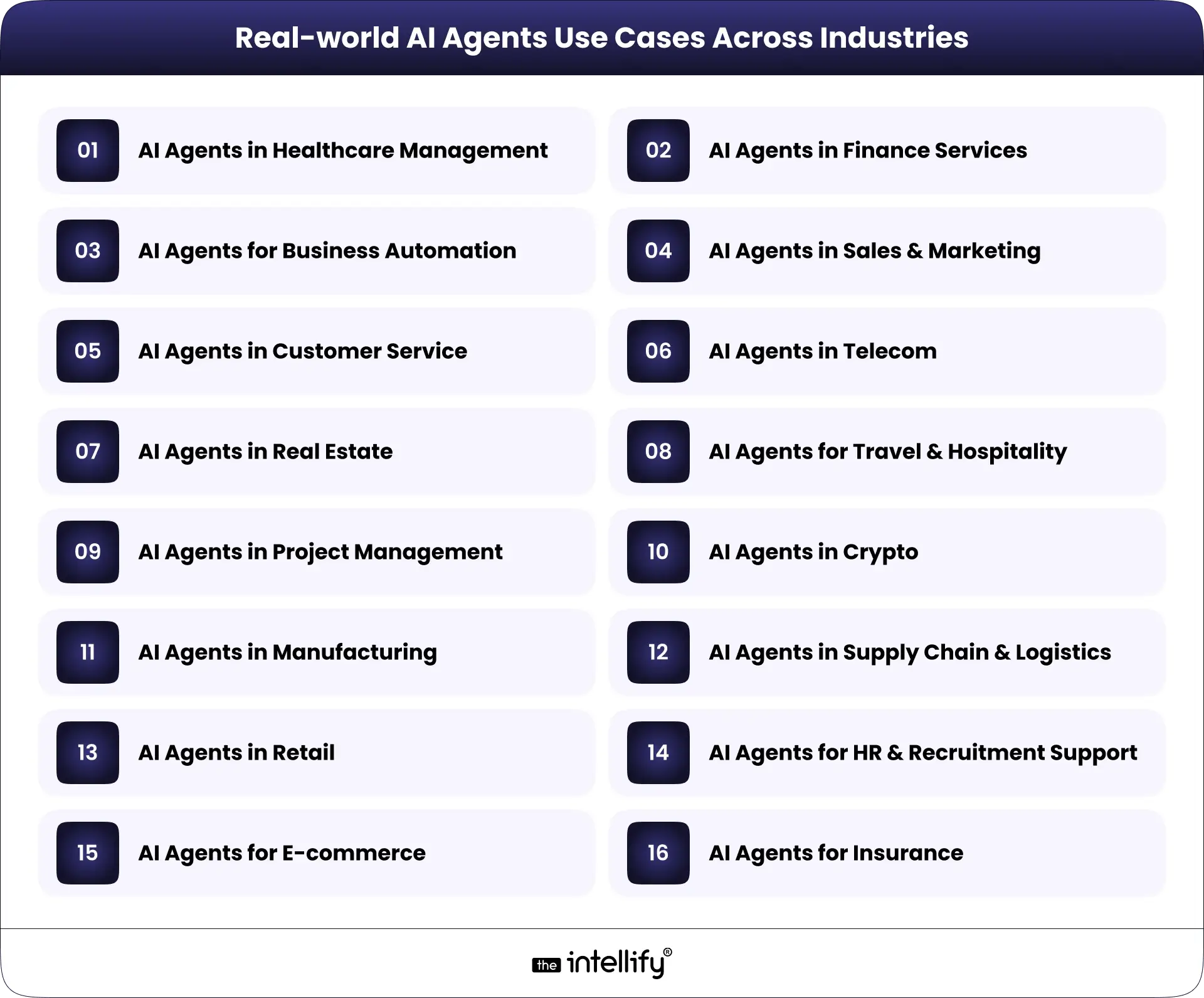Summary
This blog explains how businesses can choose the best AI agent development company to build intelligent and reliable AI solutions. This blog explores what AI agents are, how they work, and their real-world applications across industries like finance, healthcare, and manufacturing. It also outlines key factors to consider before hiring a partner, such as experience, security, scalability, and integration support.
Why AI Agents Are the Future of Business Operations
Artificial Intelligence (AI) is no longer a futuristic concept, it’s an integral part of how modern businesses operate. From customer support to sales, automation to data analysis, AI-powered solutions are transforming workflows and improving decision-making.
These smart digital assistants can understand, learn, and take action without constant human help. They save time, reduce errors, and make work smoother. But to get these results, it’s not enough to use any AI solution, you need to work with the right AI agent development company. AI agents for business are becoming essential for staying competitive.
The right partner will help you build AI agents that actually fit your business needs and deliver measurable results. Let’s explore how you can choose the best one.
What Are AI Agents and How Do They Work?

An AI agent is a computer program that can think and act on its own to complete tasks. It looks at data, makes decisions, and takes action just like a human team member would, but faster.
For example:
- An AI agent can talk to customers on your website 24/7.
- It can analyze your sales data and suggest the best next move.
- It can remind your team about tasks or automate routine actions.
Unlike simple chatbots, AI agents don’t just follow fixed commands. They learn from every interaction and get better over time. This makes them a perfect fit for businesses that want to grow efficiently.
Top AI Agent Use Cases Across Industries
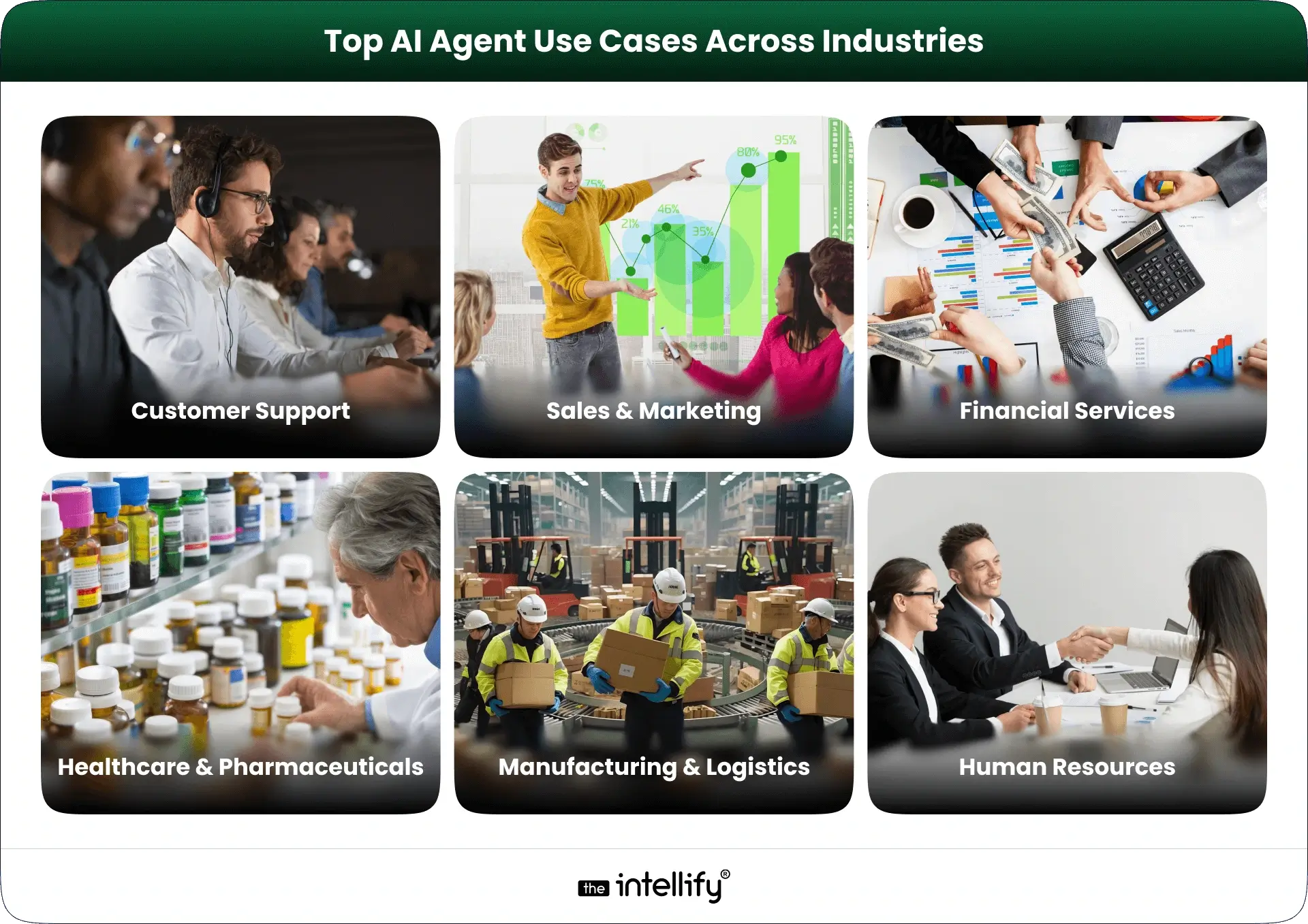
AI agents are versatile and can fit into almost any business process. Here are some of the most impactful AI agent use cases transforming industries today:
Customer Support
AI agents can serve as smart virtual assistants handling FAQs, routing complex queries to human agents, and offering 24/7 support. They reduce operational costs while improving customer satisfaction.
Sales & Marketing
AI agents assist sales teams by identifying potential leads, analyzing buyer behavior, sending personalized messages, and even scheduling meetings. Marketing teams use them for campaign optimization and engagement tracking.
Financial Services
In banking and finance, AI agents help with fraud detection, risk analysis, and automated financial planning. They also support customers in managing investments and payments.
Healthcare & Pharmaceuticals
AI agents in healthcare industry are used for appointment scheduling, patient engagement, diagnostics assistance, and drug discovery support. They enable more efficient healthcare delivery with reduced manual intervention.
Manufacturing & Logistics
AI agents monitor real-time logistics, predict maintenance needs, and manage production schedules, improving accuracy and reducing downtime.
Human Resources
AI agents screen candidates, analyze resumes, and assist in employee engagement activities, allowing HR teams to focus on strategic decision-making.
From startups to enterprises, AI agent use cases show how flexible the technology is and how it can bring real improvements in speed, accuracy, and customer experience.
Why Businesses Are Investing in AI Agent Development
The global shift toward AI-driven operations is undeniable. Businesses are investing in AI agent development for several key reasons:
1. Improved Efficiency: AI agents handle repetitive and time-consuming tasks faster and more accurately than humans and freeing teams to focus on creative and strategic work.
2. Smarter Decision-Making: By processing large volumes of data and identifying trends, AI agents provide real-time insights that help business leaders make data-backed decisions.
3. Personalized Experience: AI agents can analyze individual customer behaviors and preferences, allowing businesses to deliver highly personalized experiences.
4. Cost Savings: Automation powered by AI agents reduces the need for manual processes, minimizing labor costs and improving operational ROI.
5. 24/7 Availability: Unlike human teams, AI agents don’t sleep. They ensure continuous operations and faster responses, especially in global customer-facing businesses.
Key Factors to Consider When Choosing an AI Agent Development Company
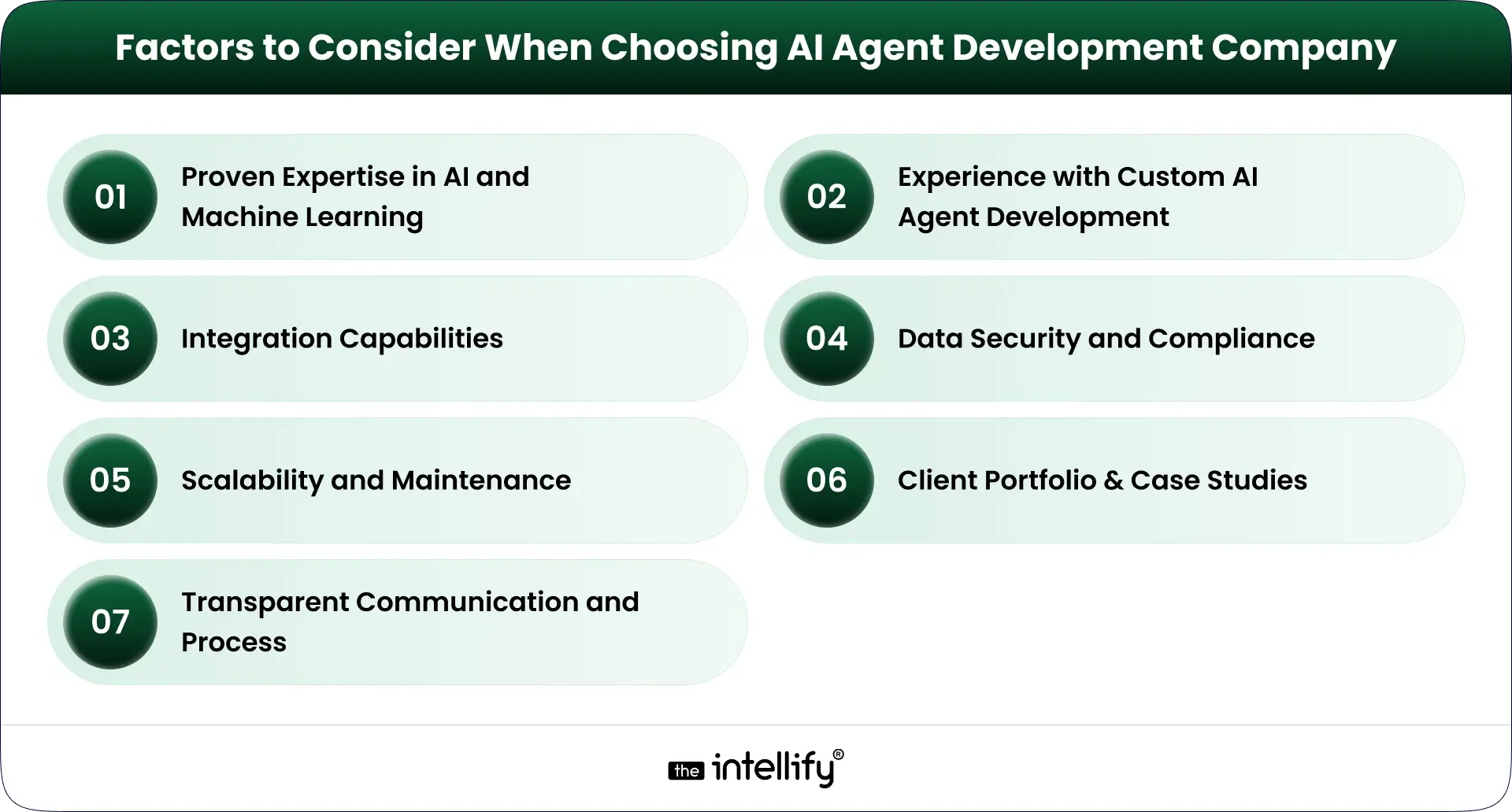
Selecting the right AI agent development company can make the difference between a successful project and an expensive experiment. Here are the most important things to look for:
1. Proven Expertise in AI and Machine Learning
Check whether the company has a deep understanding of AI models, frameworks (like LangChain, OpenAI, or TensorFlow), and integration capabilities. A technically sound partner can help you build efficient and scalable AI agents.
2. Experience with Custom AI Agent Development
Every business has unique workflows. Choose a development partner with experience in designing custom AI agents tailored to your business objectives, not generic one-size-fits-all solutions.
3. Integration Capabilities
The AI agent must integrate seamlessly with your existing tools like CRMs, ERPs, APIs, and databases. Ask if the company provides flexible integration options that ensure smooth system communication.
4. Data Security and Compliance
AI agents often process sensitive data. Ensure your partner follows GDPR, HIPAA, or other relevant data protection regulations to maintain security and trust.
5. Scalability and Maintenance
The development company should design AI systems that can grow as your business expands with reliable post-deployment support and regular updates.
6. Client Portfolio & Case Studies
Always review the company’s past projects and AI agent use cases. Successful case studies reflect real-world experience and the ability to deliver measurable results.
7. Transparent Communication and Process
A good AI agent development company will maintain transparency during every phase from ideation to deployment. Look for a partner who offers clear documentation, milestone tracking, and regular updates.
Questions to Ask Before Hiring an AI Agent Development Company
Before signing any contract, here are a few strategic questions that can help you make the right decision:
- What industries have you built AI agents for?
- Which AI frameworks or models do you use, and why?
- How do you ensure data security and compliance?
- Can you customize AI agents for my business goals?
- What’s your approach to training and fine-tuning AI models?
- Do you offer post-launch support, analytics, and optimization?
- What kind of ROI or efficiency improvement can I expect?
These questions not only show your preparedness but also test the technical and strategic depth of the potential development company.
Common Mistakes to Avoid When Selecting an AI Partner
Even experienced business leaders can make missteps when choosing an AI partner. Avoid these common pitfalls:
- Focusing only on price instead of technical expertise and value.
- Ignoring long-term maintenance. AI agents need updates and tuning to stay effective.
- Overlooking data security and compliance measures.
- Failing to verify past AI agent use cases or client testimonials.
- Not defining clear KPIs for success and performance tracking.
Avoiding these mistakes can save you time, money, and future headaches.
Future of AI Agents in Business Transformation
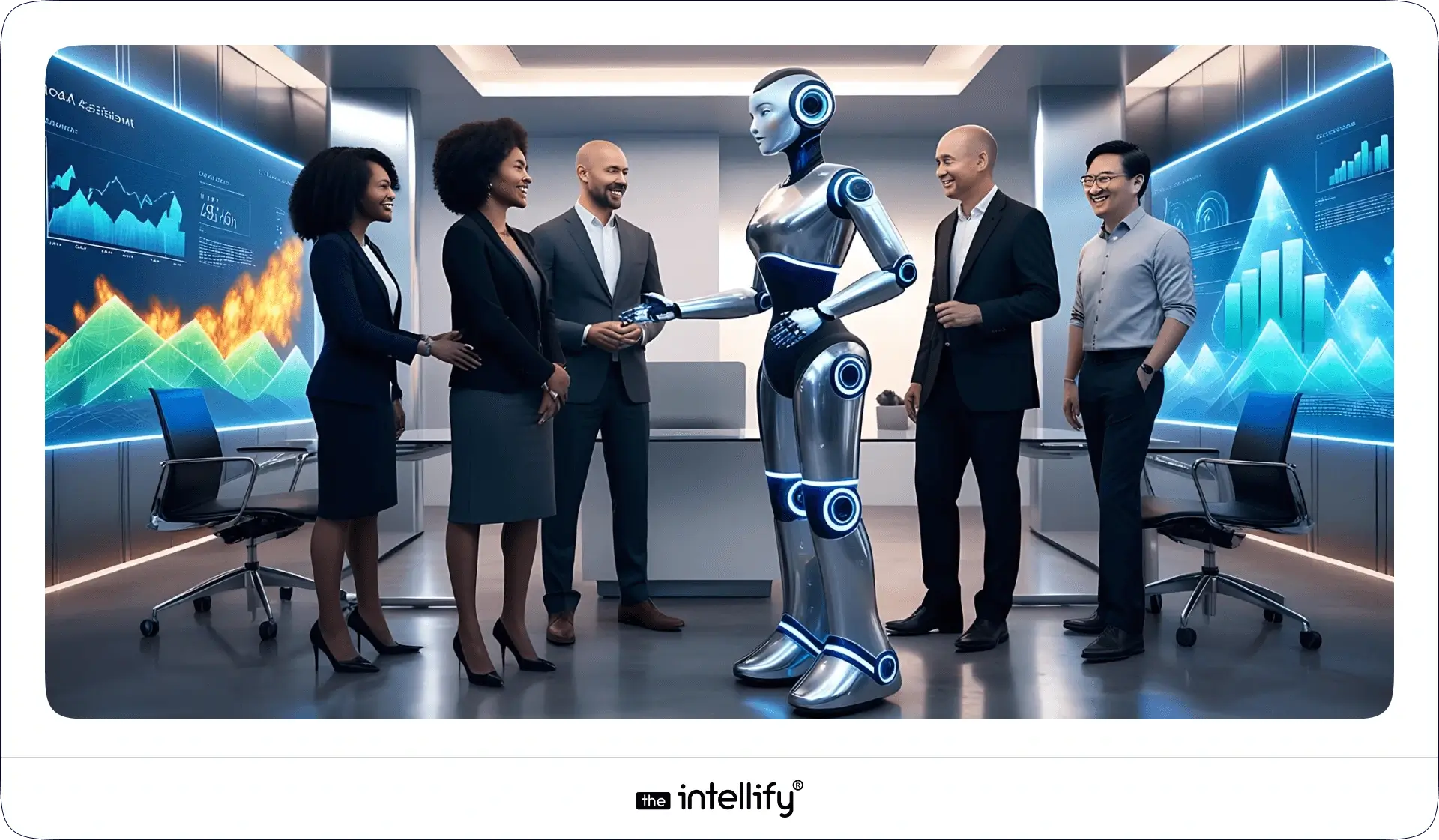
The future of AI agents looks bright. These intelligent assistants are evolving from simple chat tools into full-fledged team members. Soon, they’ll collaborate with humans on complex projects, manage tasks across departments, and even make predictions for better planning.
We’re moving toward systems where multiple AI agents work together by analyzing, deciding, and acting across entire organizations. Businesses that start now will be well ahead of their competition in a few years.
Partnering with a trusted AI agent development company ensures you’re ready for this next big shift.
How the Right AI Agent Partner, like The Intellify help you grow?
Choosing the right development partner isn’t just about technology, it’s about vision alignment. A reliable AI agent development company like The Intellify will:
- Understand your business goals deeply
- Build AI agents that integrate seamlessly into your ecosystem
- Ensure that solutions are scalable, secure, and compliant
- Offer insights and analytics that continuously improve performance
When you pick the right company, you’re not just getting software, you’re gaining a growth partner who helps you use AI to its full potential.
Final Thought
AI agents are transforming how companies work by making operations faster, smarter, and more customer-friendly. But success depends on choosing the right AI agent development company, one that listens, understands, and builds for your goals.
Start with clear objectives, do your research, and find a team that values transparency, experience, and innovation. With the right partner, your business can use AI agents to unlock new opportunities and stay ahead in the digital world.
Frequently Asked Questions (FAQs)
1. What is an AI agent, and how can it benefit my business?
An AI agent is a smart software tool that can understand, analyze, and act on information to perform tasks usually done by humans. Businesses use AI agents to save time, reduce errors, and handle repetitive or complex processes. For example, AI agents can answer customer questions instantly, manage workflows, or provide insights from data. By using AI agents, companies can improve efficiency, enhance customer satisfaction, and free employees to focus on higher-value work.
2. How do I choose the right AI agent development company?
Choosing the right AI agent development company requires looking beyond price. Focus on their experience with similar projects, ability to deliver custom solutions, and track record of successful AI implementations. Also, check how easily their AI agents can integrate with your existing tools and systems. Post-deployment support and ongoing updates are crucial to keep your AI solutions effective. Partnering with a skilled company ensures your AI agents are reliable, scalable, and aligned with your business goals.
3. What are some common use cases for AI agents in business?
AI agents are highly versatile and can help businesses in many areas. Common uses include:
- Customer support: Answering queries instantly and providing 24/7 service.
- Sales and marketing: Personalizing campaigns, generating leads, and tracking performance.
- Operations: Automating supply chains, inventory, and daily workflows.
- HR and recruitment: Screening resumes, scheduling interviews, and onboarding employees.
These use cases show that AI agents can make operations smoother, decisions faster, and customer interactions more personalized.
4. What should I expect during the AI agent development process?
The development of AI agents follows a clear and structured path:
- Understanding your needs – Identifying which business tasks can benefit from AI.
- Design and prototyping – Planning the AI agent’s functionality and testing early versions.
- Development and testing – Building the solution and checking for performance and accuracy.
- Deployment – Integrating the AI agent with your existing systems.
- Support and updates – Monitoring and improving the AI agent as your business evolves.
This process ensures that the AI agent meets your goals and delivers real value to your business.
5. How can The Intellify assist in AI agent development?
The Intellify specializes in creating intelligent AI solutions for businesses. We design AI agents that are tailored to your needs, integrate seamlessly with your current systems, and provide ongoing support for long-term success. Whether it’s automating customer interactions, improving operational efficiency, or analyzing data for insights, The Intellify ensures your AI agents deliver measurable results. Partnering with us helps businesses adopt AI confidently and effectively.
6. How much does it cost to hire an AI agent development company?
The cost of hiring a AI agent development company depends on the complexity of your project, the type of AI agent required, and the level of customization. Basic AI agents for simple tasks may cost less, while advanced solutions with integrations, analytics, and multi-tasking abilities may be higher. A trusted company like The Intellify works closely with you to understand your needs and provide a transparent, tailored estimate, ensuring you get the best value for your investment.
